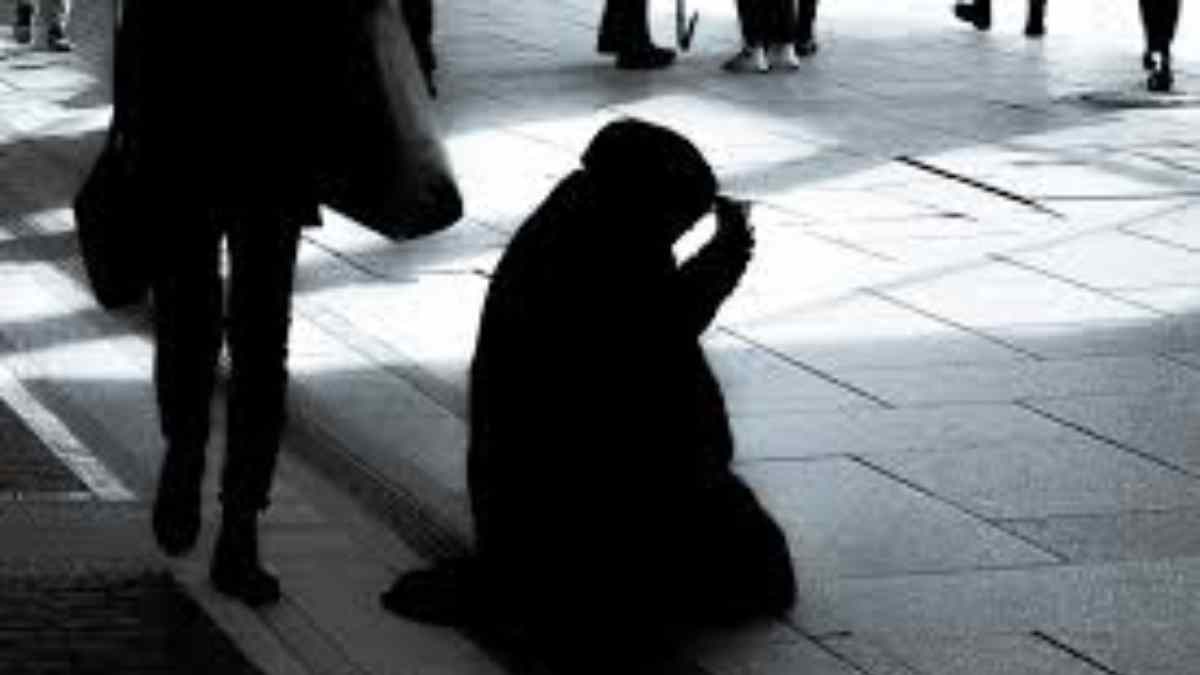When Saudi Arabia urged friendly country Pakistan to take action against those who arrive in the country to beg at its religious places in Mecca and Medina in the disguise of Umrah, it simply touched upon the problem plaguing the Islamic country for generations. Although begging is ‘forbidden’ and described as a ‘hateful’ practice though not ‘haram’ in Islam, millions of Muslims resort to this job when left with no alternative.
90% Of Beggars Are Pakistanis
Thousands of beggars flock to the holy cities in the country and according to the Saudi authorities, 90% of them are Pakistanis. In a country that is the home of more than three and a half million Pakistanis, mostly in blue-collar jobs, they can easily be identified also due to their language and dress.
Five Million Pakistanis In Gulf Countries
The United Arab Emirates and Qatar are other countries, chosen by Pakistani beggars to earn some money. While 1.60 million Pakistanis live in the UAE, about 200,000 live in Qatar. While poverty is not very prevalent in any of the Gulf countries, much of the wealth is consolidated in the hands of a few sheiks and members of the royal family. Despite the rich-poor divide, many government-run schemes help the poor, women, and other people. Though the unemployment rate is high in the oil-rich country, the government doles out money to help them.
Thousands Of Pakistani Beggars In Saudi Holy Cities
According to Pakistani media, Saudi Arabia has sent back more than 44,000 Pakistanis in the last two and a half years. Thousands of them were beggars, and some of them spent months in Saudi jails. According to an estimate, more than 50,000 Pakistanis beg in the holy places of Mecca, Madina, Meena and the holy hills of Arafat. They are supposed to be regular beggars who have adopted begging as a profession and stay there around the year.
How Much Do Beggars Earn In Saudi Arabia?
These Pakistani beggars earn mainly during Umrah, the pilgrimage of the holy places by Muslims around the year. According to an estimate, they earn about $20 or Saudi Riyal 75, equivalent to PKR 5,400.
Why Do People Beg At Holy Places?
According to analysts, begging has many reasons behind it. Religion is one of the factors behind the economy that encourages begging. As the people on Umrah or Hajj go there driven by spirituality and religious duty, they want to earn blessings by donating to the poor people. On the other hand, some people also believe they are begging at the home of Allah and this may bring them a reward (‘sabaab’) besides money. Consequently, begging is not considered a hateful job by many.
Economy Of Begging
The economy of begging is the main reason behind the problem. According to the Centre for Business and Society in Pakistan, the money received by begging exceeds the money earned by unskilled labourers in most cases. A beggar can earn up to PKR 950 in Islamabad, PKR 1,400 in Lahore and PKR 2,000 in the port city of Karachi. The national average may come to PKR 850.
Begging Brings $42 Billion
Unskilled labour may find it difficult to earn this much in these cities. In a country with a population of 230 million, about 38 million are beggars. It may come to $42 billion annually. This is as much as 12% of the Pakistani GDP.
Pakistan Economy In Tatters
Pakistani economy ranks 46th in the world with an aggregate of $338.2 billion in 2023. It can be studied in contrast to Tata Group of Companies which has a total net worth of $365 billion. The per capita income of the Islamic country is $1,589. With a population of 241.5 million, Pakistan’s GDP ranks 161st in the world.
World Bank: 40% Pakistanis Below Poverty Line
The World Bank has said in a report in 2023 that 40% of Pakistan’s population lives below the poverty line, which is $3.65 per day. It has the lowest per capita income in the South East Asia. According to this report, about 84.5% of Pakistanis earn less than $6.85 per day.
On the other hand, in a report submitted by the Ministry of Planning and Development in the National Assembly of Pakistan, about 24.3% or 55 million Pakistanis are below the poverty line.
Soaring Un-Employment
According to the 1988 census, the rate of unemployment in Pakistan is 19.68%, Balochistan tops the list with 33.48% unemployed.
More than half of the 10 million Pakistanis living abroad are in Gulf countries. About five million Pakistanis living in the three countries of Saudi Arabia, the UAE, and Qatar send about 86% of the remittances Pakistan receives every year.
In a country where riots to loot flour from trucks have been reported several times, where unemployment is as high as 19.68% and 40% of the population lives below the poverty line of % 3.65 per day, begging has emerged as a choice, rather than compulsion. The government fighting to pay for the basic needs of its population can ignore such an ignominy till the alarm bell begins ringing.













